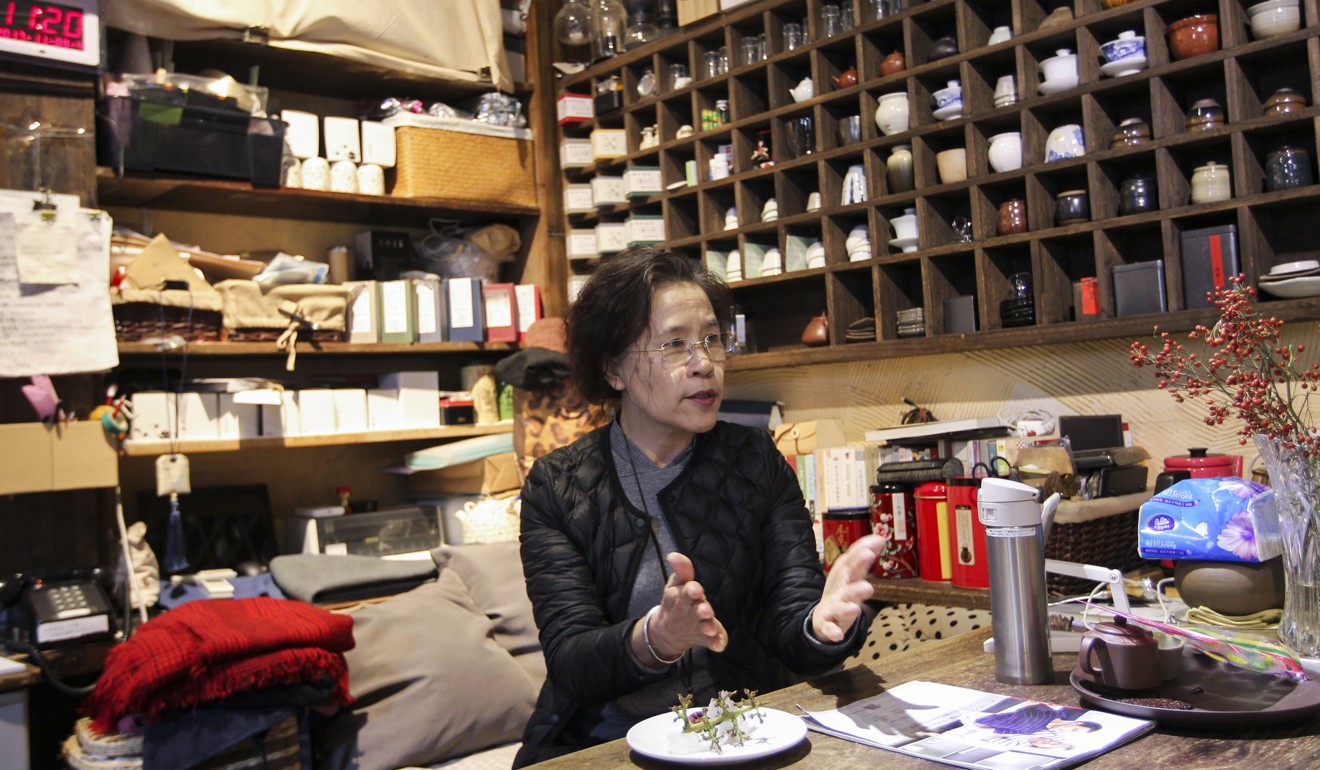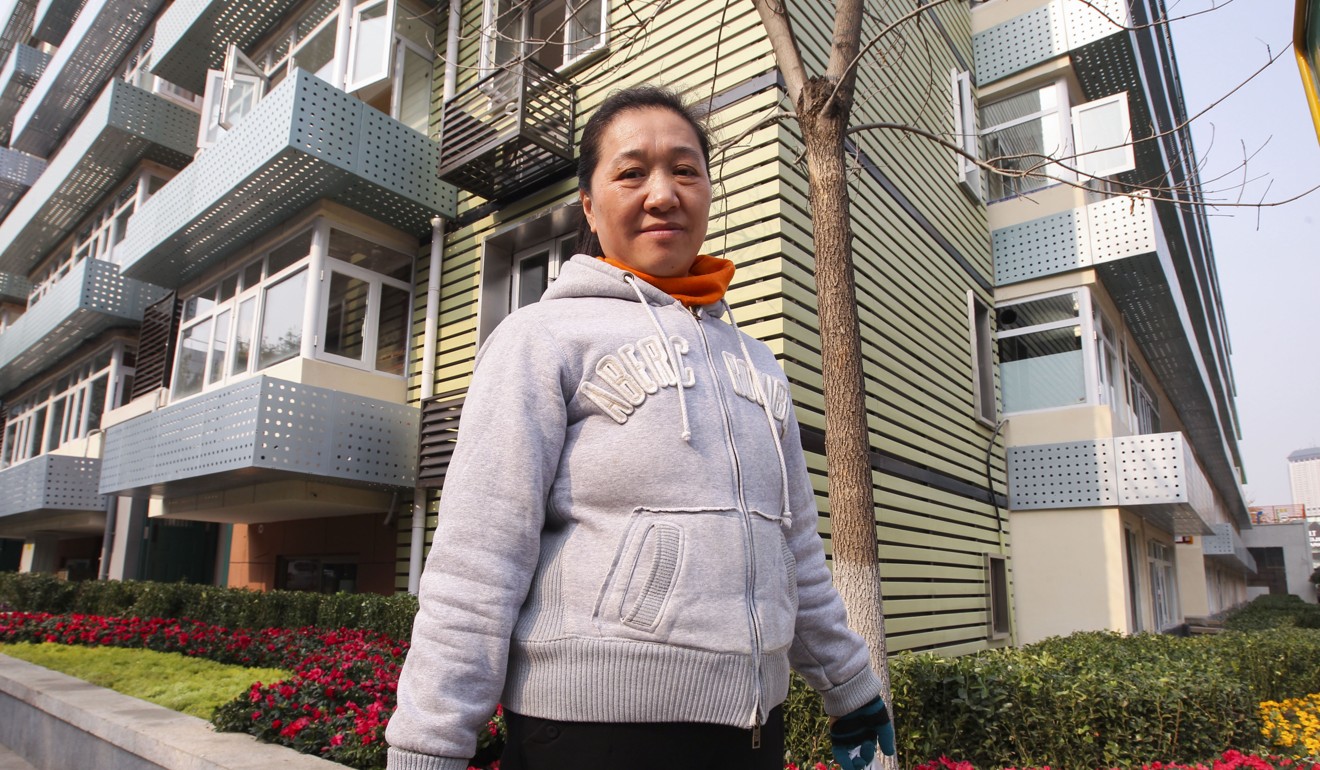
Clean-up in Beijing’s historic hutongs leaves famous bar streets tidier … but much quieter
Crackdown on small businesses without licences has led to closures of bars, shops and other amenities, critics say
It was nearly noon and coffee shop owner Chen Zhe had nothing to do but watch television shows on her mobile phone.
“My shop would be full at this time a few months ago, but now it’s empty,” said Chen, who has been running her shop in Beijing’s 46 Fangjia Hutong since 2008.
The Chinese capital’s narrow alleyways with courtyard houses, known as hutongs, have long been a draw for tourists, locals and expats alike. Fangjia was known for its restaurants, theatres and bars.
Chen’s shop was once used as a location for popular television shows and magazine shoots for movie stars, but recently has been forced to close its popular rooftop area after a sharp decline in customers.
Six months ago, workers started bricking up front doors and replacing them with grey concrete in a crackdown against businesses operating without a licence. Chen’s shop is one of the few to escape relatively unscathed, but its future prospects look gloomy.

Hutongs like Fangjia have taken the hardest hit since Beijing’s city government began its crackdown. For decades, the government turned a blind eye to businesses converting ground floor flats and houses in the hutongs into business venues.
The decision to finally take action was to “preserve the landscape as an ancient capital and protect the environment”, one demolition notice read.
The result has been to force some people running small businesses out of the capital, along with their staff, many of them migrant workers. Beijing’s government has pledged to cap its population to 23 million. The population was 21.7 million last year.
Many residents in the hutongs are angry about the changes.
A 69-year-old man, who has been living in Fangjia Hutong all his life, said local amenities had been destroyed.
“All the restaurants are gone. I used to go to small restaurants to have a quick meal like noodles, but now I have nowhere to go.
“There used to be three vegetable shops in this hutong, but now there are none,” he said.
An elderly woman, who declined to give her full name, said it was one thing to tidy up the hutongs, but questioned the move to chase away restaurants and grocery shops.
“We live here and our lives are greatly affected,” she said.
A regular visitor to the area, Fox Zhao, 26, said he had witnessed bars, restaurants and shops steadily disappear.
He said the city administrators should embrace the changes rather than try to restore a look that existed decades ago.
“People are part of the hutongs and people make hutongs alive. The hutong’s look has already changed with the shops and restaurants. I don’t think demolishing walls and painting them grey is the way to preserve the capital’s look,” Zhao said.
Several kilometres away is another example of an area transformed by the city authorities’ crackdown on illegal small businesses, many staffed by workers from poorer areas beyond Beijing.
A back alley behind luxury shops in the popular Sanlitun nightlife area was recently unveiled to the public after a “facelift”.
Six months earlier, dozens of shops, restaurants and bars were demolished and the bulldozers moved in. Known locally as “dirty bar street”, Sanlitun Beixiao Street has now been widened and converted into a pedestrian area, with flowers and bushes on the roadside.
Two big book stores are under renovation and old residential buildings have had their facades repainted and decorated.
The changes were welcomed by Sarah Bi, an office worker who passes the street every day for lunch.
“I like it so much better now. There used to be garbage and dirty sewage along the pavement. Without the rubbish and cars, it’s a very nice area to walk about.”
Others, however, are unhappy with the changes in the area, which used to be a popular hang out, particularly for young people and expats.
Those hardest hit, however, are the people who ran businesses on “dirty bar street”.
Jin Zhenghui, 52, who is from Henan province in central China, ran an African food store in Sanlitun for 30 years until her shop was forced to close six months ago.
She is also angry that she has been banned from selling her remaining stock from her rented flat to help make ends meet.
Jin said, however, she was determined to stay in the capital.
“My son works in Beijing and I will look after my grandchild. They want me to leave, but I’m not going to,” Jin said.

Her neighbour Li Sihua, 50, who is from Jiangsu province and ran a tailor’s shop in the area for three decades, had his flat stormed by 50 officers from several government agencies and two sewing machines were confiscated. He was accused of operating his business without a licence.
“I’ve made suits for five ambassadors of Cyprus and I’ve made suits for my old customers at home. I didn’t have signs to advertise. If this is considered illegal, I will go find a job as a security guard.
Li is equally defiant that he will stay.
“I have stayed in Sanlitun for 30 years. I don’t have farmland at home. I’m not going anywhere. Where do you want me to go?”

